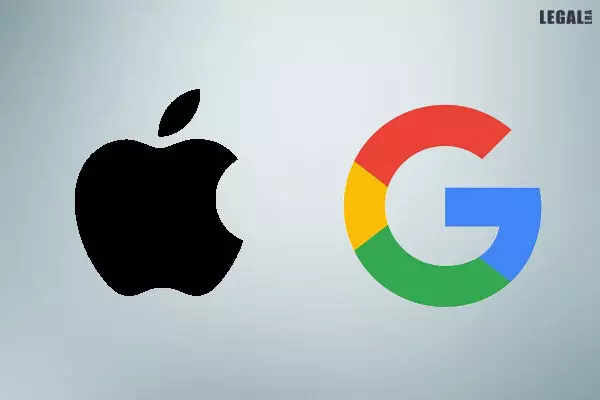- Home
- News
- Articles+
- Aerospace
- AI
- Agriculture
- Alternate Dispute Resolution
- Arbitration & Mediation
- Banking and Finance
- Bankruptcy
- Book Review
- Bribery & Corruption
- Commercial Litigation
- Competition Law
- Conference Reports
- Consumer Products
- Contract
- Corporate Governance
- Corporate Law
- Covid-19
- Cryptocurrency
- Cybersecurity
- Data Protection
- Defence
- Digital Economy
- E-commerce
- Employment Law
- Energy and Natural Resources
- Entertainment and Sports Law
- Environmental Law
- ESG
- FDI
- Food and Beverage
- Gaming
- Health Care
- IBC Diaries
- In Focus
- Inclusion & Diversity
- Insurance Law
- Intellectual Property
- International Law
- IP & Tech Era
- Know the Law
- Labour Laws
- Law & Policy and Regulation
- Litigation
- Litigation Funding
- Manufacturing
- Mergers & Acquisitions
- NFTs
- Privacy
- Private Equity
- Project Finance
- Real Estate
- Risk and Compliance
- Student Corner
- Take On Board
- Tax
- Technology Media and Telecom
- Tributes
- Viewpoint
- Zoom In
- Law Firms
- In-House
- Rankings
- E-Magazine
- Legal Era TV
- Events
- News
- Articles
- Aerospace
- AI
- Agriculture
- Alternate Dispute Resolution
- Arbitration & Mediation
- Banking and Finance
- Bankruptcy
- Book Review
- Bribery & Corruption
- Commercial Litigation
- Competition Law
- Conference Reports
- Consumer Products
- Contract
- Corporate Governance
- Corporate Law
- Covid-19
- Cryptocurrency
- Cybersecurity
- Data Protection
- Defence
- Digital Economy
- E-commerce
- Employment Law
- Energy and Natural Resources
- Entertainment and Sports Law
- Environmental Law
- ESG
- FDI
- Food and Beverage
- Gaming
- Health Care
- IBC Diaries
- In Focus
- Inclusion & Diversity
- Insurance Law
- Intellectual Property
- International Law
- IP & Tech Era
- Know the Law
- Labour Laws
- Law & Policy and Regulation
- Litigation
- Litigation Funding
- Manufacturing
- Mergers & Acquisitions
- NFTs
- Privacy
- Private Equity
- Project Finance
- Real Estate
- Risk and Compliance
- Student Corner
- Take On Board
- Tax
- Technology Media and Telecom
- Tributes
- Viewpoint
- Zoom In
- Law Firms
- In-House
- Rankings
- E-Magazine
- Legal Era TV
- Events
US Court Allows Apple and Other Tech Giants to Pursue Lawsuit Against Patent Review Rule

US Court Allows Apple and Other Tech Giants to Pursue Lawsuit Against Patent Review Rule
Apple and other tech giants such as Google have been granted permission by the US Court of Appeals for the Federal Circuit (CAFC) to proceed with a lawsuit aimed at potentially overturning the disputed FinTiv rule.
This rule enables the USPTO's Patent Trial and Appeal Board (PTAB) to reject a challenge to patent validity if there is an ongoing parallel district court case.
Apple and Google argue that this regulation was instituted without undergoing the required formal rulemaking procedure.
The likes of Apple, Google, and Cisco are frequently confronted with patent infringement lawsuits, and they commonly leverage the inter partes review (IPR) process through the PTAB to challenge the validity of the allegedly infringed patents. They contend that the FinTiv rule results in an excessive number of rejections of institution requests aimed at reviewing patent validity using the PTAB.
The US District Court for the Northern District of California had dismissed the case on the basis that the instructions of the director were deemed unreviewable due to the IPR provisions of the patent statute.
In a recent precedential opinion issued by the CAFC on March 13, the three judges partially upheld and partially reversed the decision made by the district court.
The judges confirmed the dismissal of the plaintiffs' challenges to the instructions as being inconsistent with the statute and arbitrary and capricious, stating that these challenges cannot be reviewed. They also stated that there were no constitutional challenges presented in the case.
That being said, the CAFC overturned the previous ruling of the federal court in California, which dismissed the plaintiffs' challenge to the instructions on the basis that they were improperly issued since they had to be but were not promulgated through notice-and-comment rulemaking. The CAFC judges found that the instructions were issued improperly, and therefore, the plaintiffs' challenge could be reviewed.
Matthew Harvey, a partner at the Colorado-based law firm Holland & Hart, stated that the recent ruling by the Federal Circuit provides Apple with an opportunity to argue before the district court that the USPTO should have undergone formal notice and comment rulemaking before implementing the Fintiv rule. If successful, this argument would allow Apple and other concerned parties to participate in a formal rulemaking process.
"Such rulemaking could result in IPRs becoming more likely to be instituted. But there is a chance that any formal rulemaking shifts the rule in the other direction as other interested parties would also have the opportunity to comment; or that no substantive change happens at all," Mathew added.
According to lawyers from McKool Smith's intellectual property group, as the decision to institute reviews cannot be appealed, the lawsuit cannot directly challenge the Fintiv rule itself. However, it will enable the lawsuit to proceed in determining whether the patent office adhered to the appropriate procedures while establishing the policy.
Last year, the PTAB made its order in the Apple v/s FinTiv precedential, effectively establishing the Fintiv rule. This rule outlined six factors that the PTAB would take into account when refusing an institution on the grounds of a previous trial date in a parallel proceeding.


